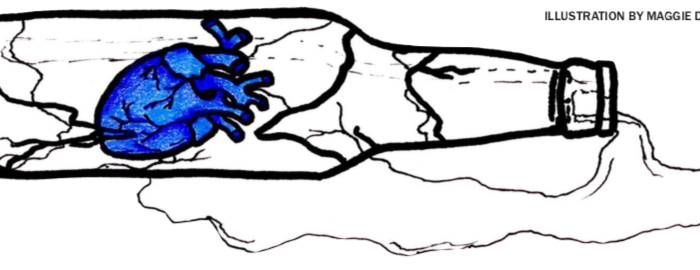By Megan Friel
Staff Writer
Nearly half of all new sexually transmitted infection cases occur in a generation of college students de ned by the hook-up culture. But only 12 percent were tested for STIs last year. According to data from the American Sexual Health Association.
Mel Wood ’21 believes that it’s “very important” to be tested for STDs and STIs, especially as a college student.
“It’s important to get tested for STD’s and STI’s so that people are exposed to information before they theoretically see the STD or STI,” said Wood. “They’ll know how to take care of themselves.”

Mary Masson, a director and nurse practitioner at Bergeron Wellness Center, believes that the negative stigma surrounding STDs and STIs can contribute to such low numbers of STD and STI testing in young people.
“I think stigma still keeps people away from seeking care, but that should never be a barrier for someone,” said Masson. “Many people try to diagnose themselves by look- ing on websites, which can cause more fear and distress. We often say to students, ‘Web MD is not always your friend!’ Come and talk to us instead!”
The Center for Disease Control suggests on their website that sexually active women 25 and under should be tested for Human Immunodeficiency Virus (HIV), chlamydia, and gonorrhea once a year, while sexually active homosexual men should be tested every three to six months.
Despite the widespread stigma about testing, the amount of partners an individual has been sexually active with does not lessen the importance of STD and STI testing. although the CDC’s website lists reducing your number of sex partners as one of the ways to prevent STDs and STIs, An individual who has only slept with one partner may still get an STD or STI,. Other ways to avoid infection is to practice abstinence, vaccination, mutual monogamy, and of course, condoms.
“Correct and consistent use of the male latex condom is highly effective in reducing STD transmission,” suggests the CDC website. “Use acondom every time you have anal, vaginal, or oral sex.”
Bergeron offers a number of services to students concerned with STDs or STIs, including testing, counseling, and treatment, “All exams are free to students, however, any labs done need to be sent out and those usually involve a nominal cost between $25-45,” said Masson. “Some students choose to bill their insurance for the labs.”
Bergeron encourages students to get tested, or even just to come in for any questions and concerns. “We welcome any/all undergraduates to come and be evaluated for any question/concern/testing need,” said Masson. “No problem or question should keep them away. We are all Nurse Practitioners and are well versed in sexual health and the evaluation of STIs. ”


